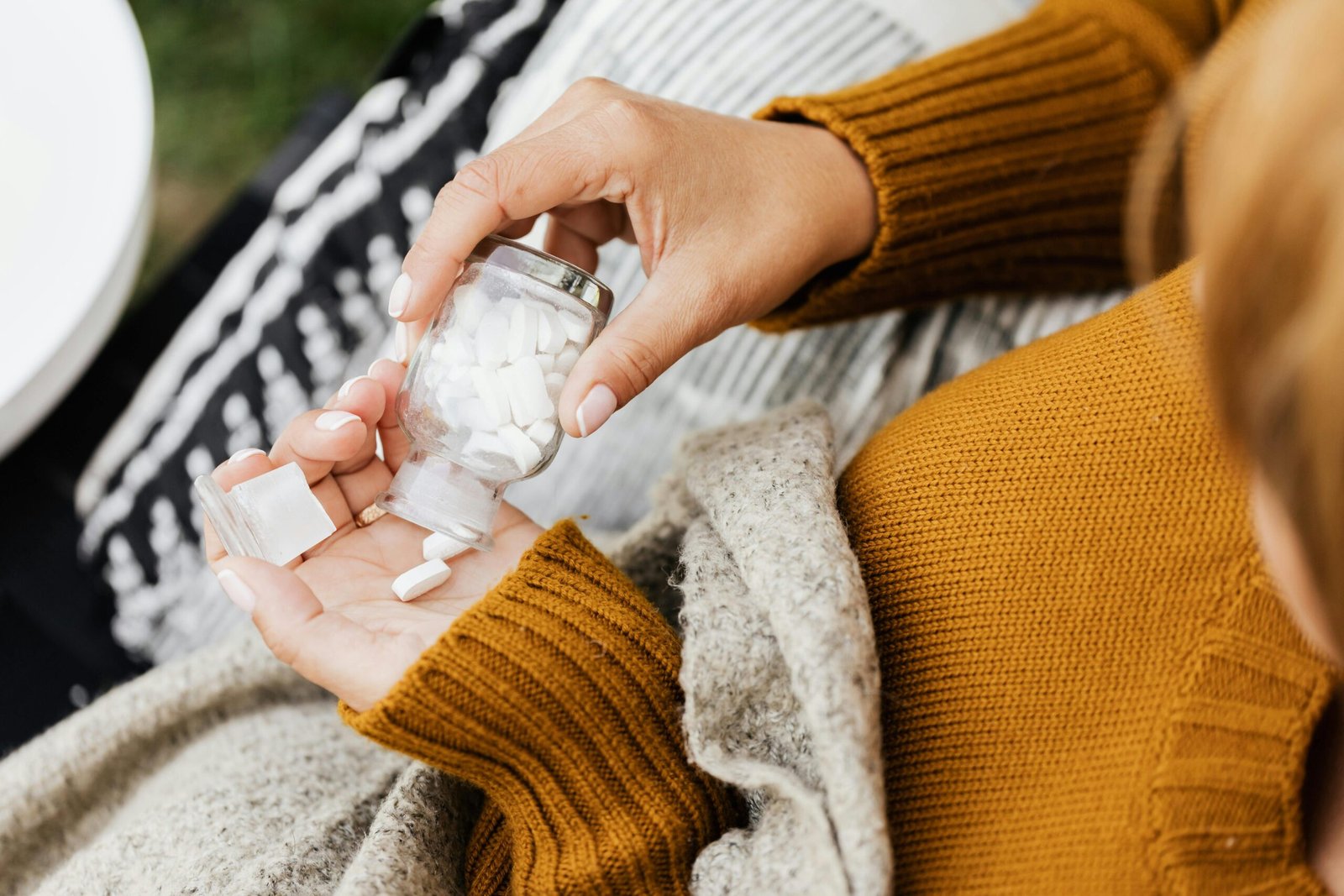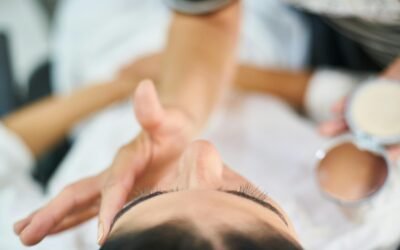Could Zinc Be the Missing Piece in Your Skin Routine?
If you’ve ever googled ‘best supplements for acne’, you’ll know that zinc comes up again and again. It’s one of the most talked-about nutrients for skin health, and it’s one I use a lot as a nutritionist who specialises in acne. Zinc plays an important role in skin healing, regulating inflammation, immune support, and even hormone balance.
But like many things in skin health, it’s rarely just one supplement that will fix everything. While zinc can make a real difference for some people, acne is a complex condition with lots of underlying drivers, and it’s important to understand where zinc fits within the bigger picture. The dose, form, and how long you take it for also make a big difference to how effective it might be.
I’ll explain everything you need to know about zinc for skin, how it works in the body, signs you might be low, the best food sources and supplement options, and how to know whether it’s right for you. I’ll also share how we approach this in clinic, combining targeted nutrients like zinc with gut health, hormone balancing and lifestyle support for real, lasting skin improvements.
If you’ve ever wondered if zinc supplements help acne, you’re in the right place.
What Is Zinc and Why Does It Matter for Skin Health?
Zinc is an essential trace mineral, meaning your body needs it in small amounts but can’t produce it on its own. It’s involved in hundreds of chemical processes. In fact, it’s estimated to play a role in over 300 enzyme reactions that affect everything from immune health to hormone balance, wound healing, mood, digestion and inflammation regulation.
When it comes to your skin, zinc helps to:
- Support wound healing and skin repair
- Regulate oil (sebum) production
- Balance hormones, including testosterone and progesterone
- Strengthen and regulate immune function
- Support gut health, which is closely linked to skin health
Because of its multiple actions, zinc is often recommended for skin conditions like acne, rosacea and eczema, but it can also support overall well-being in areas like immunity, and digestion.
Can Low Zinc Cause Acne?
This is a common question I’m asked in clinic, and the answer is possibly.
While not everyone with acne is zinc deficient, research has shown that people with acne may have lower zinc levels than those without. Low zinc can affect immune function, which may affect inflammation in the skin, slow down skin healing, and affect sebum regulation, all of which can contribute to breakouts.
You might be more at risk of low zinc levels if:
- You don’t eat many zinc-rich foods on a daily basis
- You have gut health issues that affect absorption (like low stomach acid, IBS, or IBD)
- You’re under chronic stress
- You have a history of restrictive dieting
How Do You Know If You’re Zinc Deficient?
It’s a bit difficult to test zinc accurately. However, some symptoms might suggest your levels could do with a boost:
- Frequent colds and infections
- Slow wound healing
- Thinning hair
- Brittle or weak nails
- Loss or changes in your sense of taste or smell
In clinic, I sometimes recommend a Hair Tissue Mineral Analysis (HTMA). This non-invasive test can give insight into your long-term mineral levels, including zinc, copper, magnesium and others, and can help identify imbalances that might be contributing to skin issues like acne. You can also test zinc levels in the blood, but it’s not a common test.
Where Do You Find Zinc? (Food First!)
As with any nutrient, my approach is always food first. There are plenty of foods rich in zinc you can add to your diet, such as:
- Oysters (the highest natural source, although most people don’t eat these daily!)
- Meat & fish
- Pumpkin seeds
- Chickpeas and lentils
- Tofu
- Dark chocolate
Zinc is naturally higher in animal-based foods. But including a variety of these foods daily can help keep your zinc levels topped up naturally, and offer plenty of other skin-supporting nutrients too. If you’re eating all these foods and still struggling, that’s where investigating gut health, stress levels and other factors may be important.
Zinc for Acne – How to Use Supplements Safely
If you’re considering zinc supplements for acne, it’s important to choose the right form, dose and duration.
Some of the best-absorbed forms include:
- Zinc picolinate — excellent bioavailability and my go-to in clinic
- Zinc carnosine — particularly helpful if there are gut health concerns alongside skin issues
- Zinc citrate — another well-tolerated, gentle option
Dosage matters too. For general skin support, a daily dose of 10-30mg of elemental zinc is usually recommended. (Elemental zinc is the actual amount of zinc in the supplement, check the label.)
In cases where absorption might be poor (due to gut issues), I sometimes use liquid zinc supplements for a short time to improve uptake.
It’s important to avoid mega-dosing zinc long-term without professional guidance. High doses (over 30-50mg daily) taken for more than 3 months can disrupt copper levels in the body, potentially leading to side effects.
Will Zinc Help Acne Scars?
A question I hear a lot is ‘Does zinc help acne scars?’ and it kind of depends on what you think of as acne scars. True acne scars are the changes in texture on the skin – think the pitted scars you’ll see after more severe acne. Whereas the pigmentation changes, such as red or darker marks on the skin aren’t a ‘true’ acne scar. So when it comes to zinc, it can help support the healing of post-inflammatory hyperpigmentation, but it wouldn’t be able to improve skin texture on its own. That’s where topical treatments come in. However, it can support the healing of active acne and reduce the risk of post-inflammatory marks by:
- Helping skin heal more quickly
- Reducing inflammation during breakouts
- Supporting hormonal balance to reduce future breakouts
How Long Does It Take for Zinc to Clear Acne?
Another question I get asked a lot is ‘How long does it take for zinc to clear your acne?’
The reality is, like most skin treatments, it takes time. Zinc supplements typically need 8-12 weeks to show noticeable changes in skin health, as your body replenishes stores, reduces inflammation and supports tissue healing.
It’s also important to remember that zinc alone likely won’t resolve acne completely. In clinic, we combine targeted nutrients like zinc with gut health support, hormone balancing strategies, dietary changes, stress management and tailored skincare for long-lasting results.
While zinc is a really great skin nutrient, I rarely use it on its own. Acne is a complex, multi-factorial condition with potential root causes ranging from gut imbalances to hormone shifts, nutrient deficiencies, and stress.
This is why in clinic, we take a whole-body approach to acne, starting with a detailed consultation, sometimes supported by functional tests like comprehensive gut testing, blood tests or hormone panels. This allows us to uncover what’s happening beneath the surface and tailor your plan accordingly.
We then combine food-first nutrition advice, targeted supplements (like zinc if appropriate), stress support, and simple but effective topical skincare recommendations to help you heal your skin from the inside out.
Looking for Personalised Support?
If you’re fed up of trialling supplements without clear guidance, or wondering what might be driving your breakouts, you don’t have to figure it out alone. I’ve been there, and that’s why I’m here as a qualified acne nutritionist to help you work out what’s causing your acne and help you finally clear your skin. I offer in-depth 1:1 consultations and functional testing to help you get to the root cause of your skin issues and feel confident in your skin again.
Book a discovery call or get in touch here to find out more.





0 Comments